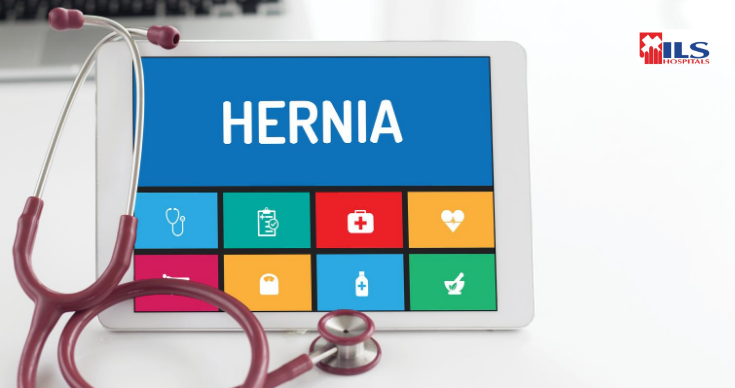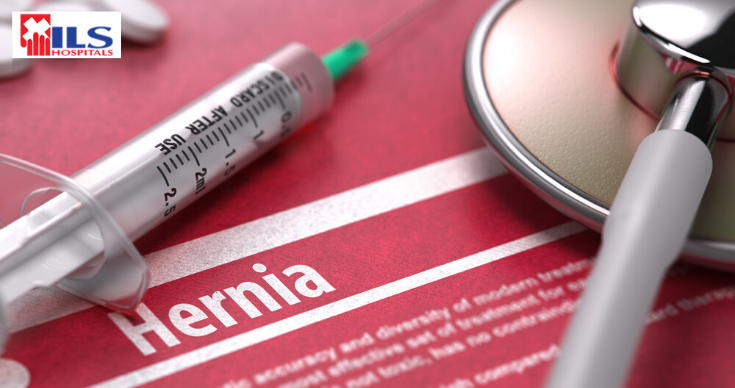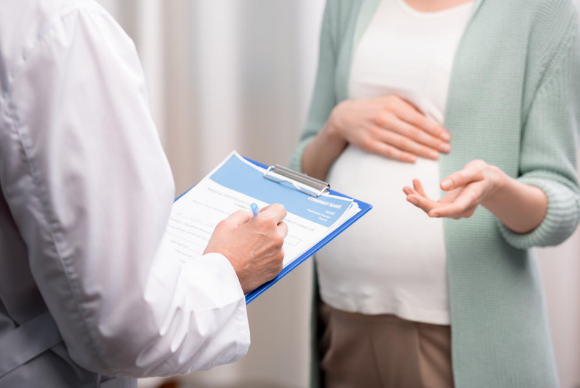Different Types Of Hernia & Their Treatment
A hernia is one of the most common surgeries faced by adults. It happens when the tissue pushes itself through the muscle where it is held, resulting in a bulge. While most hernias happen in the abdomen region, a few can happen in the groyne, upper chest, and so on. Hernia surgery in Kolkata is a relatively simple surgery performed after giving local anesthesia and comes with minimum to zero risks.
If you are wondering if you have got a hernia, one of the major symptoms is a bulge near the abdomen area that causes pain. While the pain may go away when you lie down, it worsens when you are standing, doing exercise, or lifting heavy objects. The pain might initially start but can become severe if the hernia is left untreated.
Types Of Hernia And Treatment Involved
1 – Inguinal Hernia
This is the most common type of hernia and occurs in men 25 times more than in women. It occurs in the groyne area and is of two types.
- Direct inguinal hernia occurs in an area where the abdomen walls are a bit thinner. The direct inguinal hernia usually happens in middle and old age as abdomen walls weaken with time.
- Indirect inguinal hernia occurs in the inguinal canal near the groyne area. Even though this path is closed generally before birth, it becomes a site for the development of hernia later.
2 – Femoral Hernia
This hernia affects more women than men and occurs as a result of childbirth, because of which there is weakness in the lower groyne area. This weakness leads to the drop of the intestinal sac in the femoral canal, causing a hernia.
3 – Umbilical Hernia
An umbilical hernia occurs near the belly button and is most commonly seen in children born prematurely; however, this hernia can also occur in adults.
4 – Incisional Hernia
This hernia happens due to some surgery near the abdomen that required an incision, which resulted in the weakening of the abdomen muscles.
5 – Epigastric Hernia
Above the navel and below the rib cage lies the epigastric region where the epigastric hernia occurs. This type of hernia rarely causes pain and can only be felt when a person coughs, laughs, or strains his bowels.
6 – Hiatal Hernia
This type of hernia is slightly different from the others, as the stomach is involved instead of the intestines. It occurs when the stomach bulges in the chest through the diaphragm. This hernia doesn’t cause any bulge, and its main symptoms include regurgitation of food, GERD, and heartburn.
Treatment
While the hiatal hernia can be treated with medication, surgery is the only option to treat other types of hernias. It can be an open surgery where an incision is made in the abdomen and groyne area, and the bulge is pushed back into the peritoneum. The second type of surgery is laparoscopic surgery. Several cuts are made in the abdomen, and tools are inserted (laparoscope from one incision and surgical instruments from another incision) to repair the hernia.
Conclusion
If a hernia is left untreated, it grows in size, causing greater discomfort and even cutting off blood supply to the tissue. Thus, it is advised to schedule hernia surgery in Kolkata as soon as you notice the symptoms. For more information regarding hernia surgery in Kolkata, visit https://www.ilshospitals.com/.
Is There Only One Type Of Hernia? What’s The Ideal Hernia Treatment?
A hernia is an abnormal protrusion of tissue or an organ that generally occurs in the abdomen or groin region.
Many people have the misconception, that there is only one type of hernia – groin hernia. Today, ILS Hospitals, one of the best hospitals in Kolkata and Agartala will let you know the different types of hernia and its ultimate medical treatment. So, let’s read further.
Different types of hernia
Inguinal hernia
Often called groin hernia, inguinal hernia happens when tissue (part of the intestine) protrudes through a weak abdominal opening. Inguinal hernias can be painful when you cough or lift a heavy object.
Hiatal hernia
Hiatal hernia is a medical condition in which your stomach bulges up to your chest through hiatus (an opening in the diaphragm. Common symptoms associated with hiatal hernia include heartburn, chest pain, nausea and vomiting.
Incisional hernia
Incisional hernia can happen in case of an incompletely-healed surgical wound. Incisional hernias have symptoms, such as redness, pain, and swelling around the affected area.
Sports hernia
Sports hernia may occur in the groin due to sports injuries. It should not be confused with groin hernia.
Umbilical hernia
An umbilical hernia is a hernia of the belly button. It mostly happens in infants, pregnant women, and the ones who are overweight.
Treatment for hernia
The only effective treatment for a hernia is hernia repair surgery. Of course, you’ll find hernia truss or belts in the market but keep in mind that they are no permanent cure. If you have a hernia, you need to get surgical hernia treatment as sooner as possible. The hernia repair surgery could be either general or minimally-invasive (laparoscopic) depending upon your current condition.
You can come to ILS Hospitals in Kolkata and Agartala for getting permanent hernia treatment.
Acquaint Yourself With These 4 Different Types Of Hernia
A hernia is an abnormal bulge in the affected area that occurs when the organ or fatty tissues comes out through a weak muscle opening. Hernias are painful and if left unaddressed or untreated can become serious and dangerous (a hernia can strangulate and even burst that leads to grave consequences).
Hernia repair surgery is the ultimate and preferable hernia treatment by the doctors. Most people are not familiar with the different types of hernia. So, we thought to acquaint you with 4 different hernia types for your awareness.
Here are different and common types of hernia
1. Inguinal Hernia
In case of inguinal hernia, a part of the intestine exists through a weak opening in the abdominal muscles. Some symptoms of inguinal hernia are as follows:
-
Pain in the groin area while coughing and lifting anything
-
A visible bulge in the groin area
-
Swollen and painful scrotum or testicles in men.
2. Incisional Hernia
Incisional Hernia occurs due to an unhealed surgical wound of abdominal surgery. The symptoms of an incisional hernia include:
-
Redness and swelling in the bulge
-
Constipation
-
Nausea and vomiting.
3. Umbilical Hernia
This type of hernia is commonly found in new-born babies but that does not mean adults do not encounter umbilical hernia at all. An umbilical hernia is formed in the belly button due to protrusion of an organ or fatty tissues. A few symptoms related to this hernia are as shown below:
-
Painful and discoloured bulge
-
Fever
-
Vomiting
-
Pain in the abdomen.
4. Hiatal Hernia
If the upper part of your stomach exits from its assigned spot and enters into the chest cavity, then it’s known as a hiatal hernia. A hiatal hernia happens due to various reasons like injury or certain surgeries, obesity, old age and abnormal hiatus. The symptoms of hiatal hernia are the following:
- Difficulty swallowing food
- Acid reflux
- Regurgitation or vomiting
- Chest pain
- Abdominal pain
- Constant belching or burping
- Vomiting blood
- Black stools.
There are many more types of hernia but these 4 types are quite common. A hernia cannot be left on its own and should be taken seriously. We offer general and laparoscopic hernia treatment to our patients with this condition. We are one of the best hospitals in Kolkata due to our perfect infrastructure, expert medical team and the latest facilities.
How Pregnancy Makes Hernia A Likely Possibility In The Future
Pregnancy is joyous news for every parent-to-be. However, it might bring several complications, either during pregnancy or after childbirth. Being in touch with best maternity hospitals will ensure that you can deal with these complications, effectively. However, some complications such as hernia can surface at any point in time, during or even after pregnancy period. Before understanding their connection, let’s understand what a hernia is.
What Is A Hernia?
A hernia is a medical condition in which a portion of the intestine or internal tissue pushes through the outer membrane. This can happen to any individual, however, there are many risks facts that makes its occurrence more likely. These risk factors include previous surgery or injury, previous hernia, pregnancy, obesity, and many others. Though hernia is not life-threatening in its early stages, it can lead to a severe complication, if it is left untreated for long.
How Pregnancy And Hernia Are Related
A hernia can lead to extra pressure built up in the abdomen, which is inevitable during pregnancy. Thus, there is always some chances of developing hernia for women during pregnancy. The protruded belly button during pregnancy mostly resolves after childbirth. However, many a time, it stills stays protruded as a warning sign of a hernia in the near future.
Though even a single pregnancy is a risk factor of hernia, the chances increase with multiple babies, as twins, triplet or more will, obviously exert more abdominal pressure. Moreover, having multiple pregnancies uplift the chances of hernia, particularity if the previous baby was born with the help of cesarean delivery.
Many a time, a hernia can bulge during labor as well. It is particularly true for a natural birth, as the pregnant women need to exert Herculean amount of pressure to deliver the baby. This push can also prompt a hernia simultaneously or pretty soon enough.
When Can Hernia Occur, After Pregnancy?
Sometime a hernia can appear soon after birth, or even during pregnancy. But is might onset after quite some time after childbirth. Sometimes, the hernia is a result of secondary factors such as long-term weight gain after pregnancy as well. Nevertheless, the risks of having hernia are associated with previous childbirth.
What Should Be Done?
Though neither every pregnancy leads to hernia nor every hernia occurs due to pregnancy, they are sometimes interrelated. This is why every woman who gave birth in the past should be aware of even the minute changes in their body. A visible lump should be treated as a hernia. A thorough, physical examination is often adequate to determine its nature.
Hernia treatment usually comprises of hernia repair surgery itself. This surgical procedure pushes the protrusion back in the cavity and stitches the site close. In some cases, if the opening is quite big, the surgeon uses a surgical mesh to mitigate the possibility of hernia in the future.
ILS Hospitals offers quality hernia treatment to resolve it permanently for good. For more information, visit us today!





